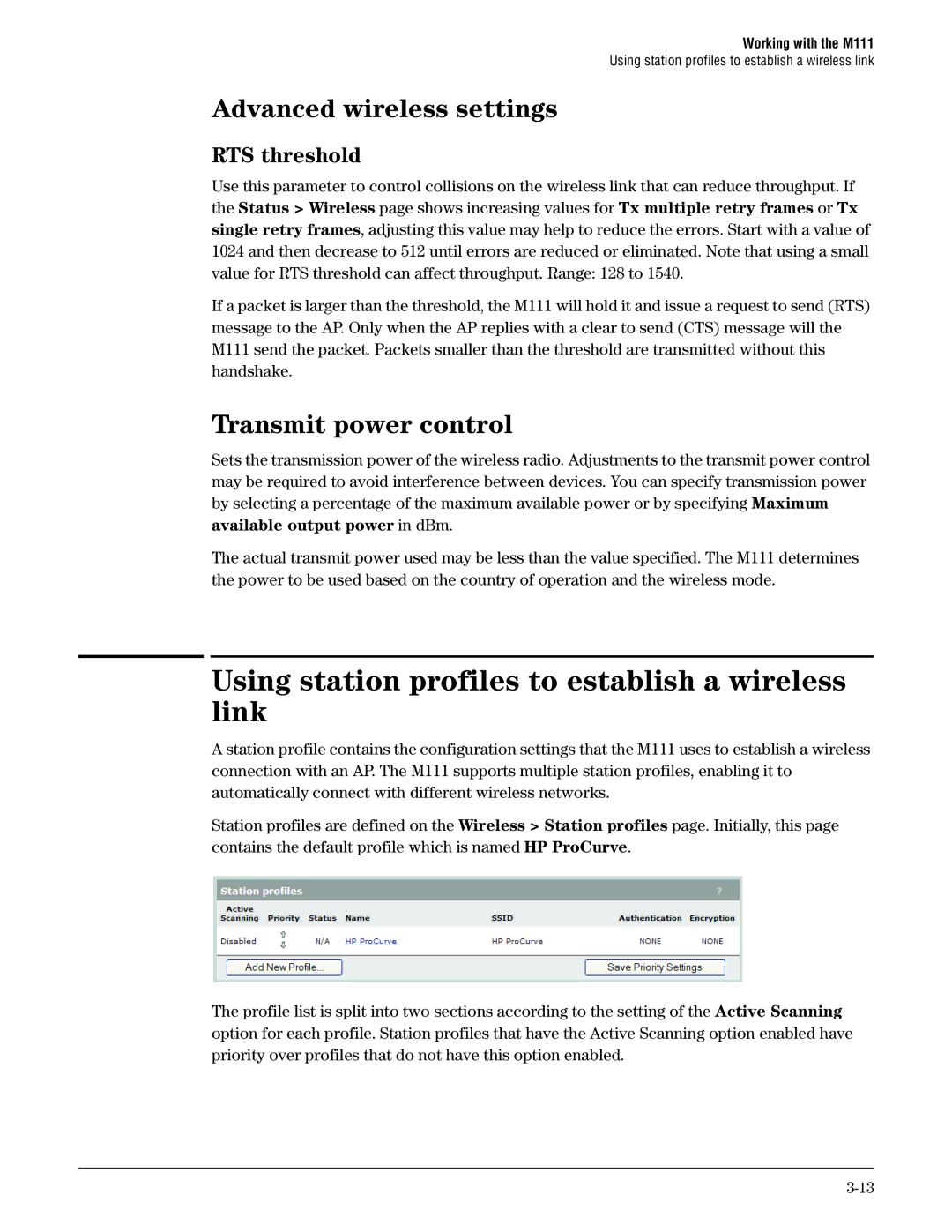
Working with the M111
Using station profiles to establish a wireless link
Advanced wireless settings
RTS threshold
Use this parameter to control collisions on the wireless link that can reduce throughput. If the Status > Wireless page shows increasing values for Tx multiple retry frames or Tx single retry frames, adjusting this value may help to reduce the errors. Start with a value of 1024 and then decrease to 512 until errors are reduced or eliminated. Note that using a small value for RTS threshold can affect throughput. Range: 128 to 1540.
If a packet is larger than the threshold, the M111 will hold it and issue a request to send (RTS) message to the AP. Only when the AP replies with a clear to send (CTS) message will the M111 send the packet. Packets smaller than the threshold are transmitted without this handshake.
Transmit power control
Sets the transmission power of the wireless radio. Adjustments to the transmit power control may be required to avoid interference between devices. You can specify transmission power by selecting a percentage of the maximum available power or by specifying Maximum available output power in dBm.
The actual transmit power used may be less than the value specified. The M111 determines the power to be used based on the country of operation and the wireless mode.
Using station profiles to establish a wireless link
A station profile contains the configuration settings that the M111 uses to establish a wireless connection with an AP. The M111 supports multiple station profiles, enabling it to automatically connect with different wireless networks.
Station profiles are defined on the Wireless > Station profiles page. Initially, this page contains the default profile which is named HP ProCurve.
The profile list is split into two sections according to the setting of the Active Scanning option for each profile. Station profiles that have the Active Scanning option enabled have priority over profiles that do not have this option enabled.
